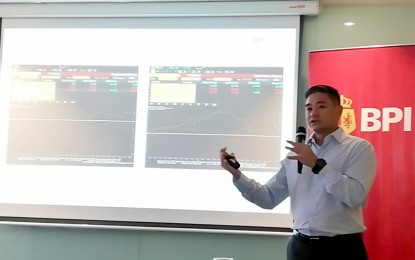
Reginaldo Cariaso, head of BPI Corporate Banking Strategy, Products, and Solutions
MANILA – An official of the Ayala-led Bank of the Philippine Islands (BPI) said he is optimistic about the Real Estate Investment Trust (REIT) in the country, noting that among the main goals of Filipinos is to have a real estate investment.
In a briefing on Wednesday, BPI Corporate Banking Strategy, Products, and Solutions head Reginaldo Cariaso said Filipino investors are “very well aware” of the investment, citing that the Implementing Rules and Regulations (IRR) of Republic Act (RA) 9856, or the REIT Act, was released about a decade after the law’s enactment.
Cariaso said REITs are “designed to be a fairly conservative instrument” that people who are afraid to put their money in risky assets, such as equities, have various options.
Other prospective investors are people who have invested in equities but are looking for less volatile investments, and those who want high yields.
Citing data from Hong Kong Exchanges (KHEX), which has a REIT market, he said REITs have superior price performance compared to Hong Kong’s property index.
The Stock Exchange of Thailand’s (SET) REITs are also less volatile compared to the country’s property index, Cariaso said.
REITs are private entities invested in income-generating real estates, such as office spaces, malls, service apartments, hotels, hospitals, and warehouses.
The REIT law’s IRR requires companies to list with the Philippine Stock Exchange (PSE), with a minimum public float of 33 percent but must be increased to 67 percent within three years.
REIT companies are also required to reinvest their earnings in the local real estate sector to help boost the government’s infrastructure program.
With the current low-interest rate environment and global volatility, Cariaso said REITs have lots of potential in the Philippines, with capitalization projected to be at par with that of Malaysia’s estimated USD7 billion and Thailand’s USD11 billion.
He further said that since the investment is on real property, Filipinos are “very familiar” with it.
“Of course, it’s important that the first few REIT sponsors are well-recognized names with strong reputation to give investor comfort that they’ve been able to deliver shareholder value over time and that they have the expertise to execute,” Cariaso added. (PNA)
